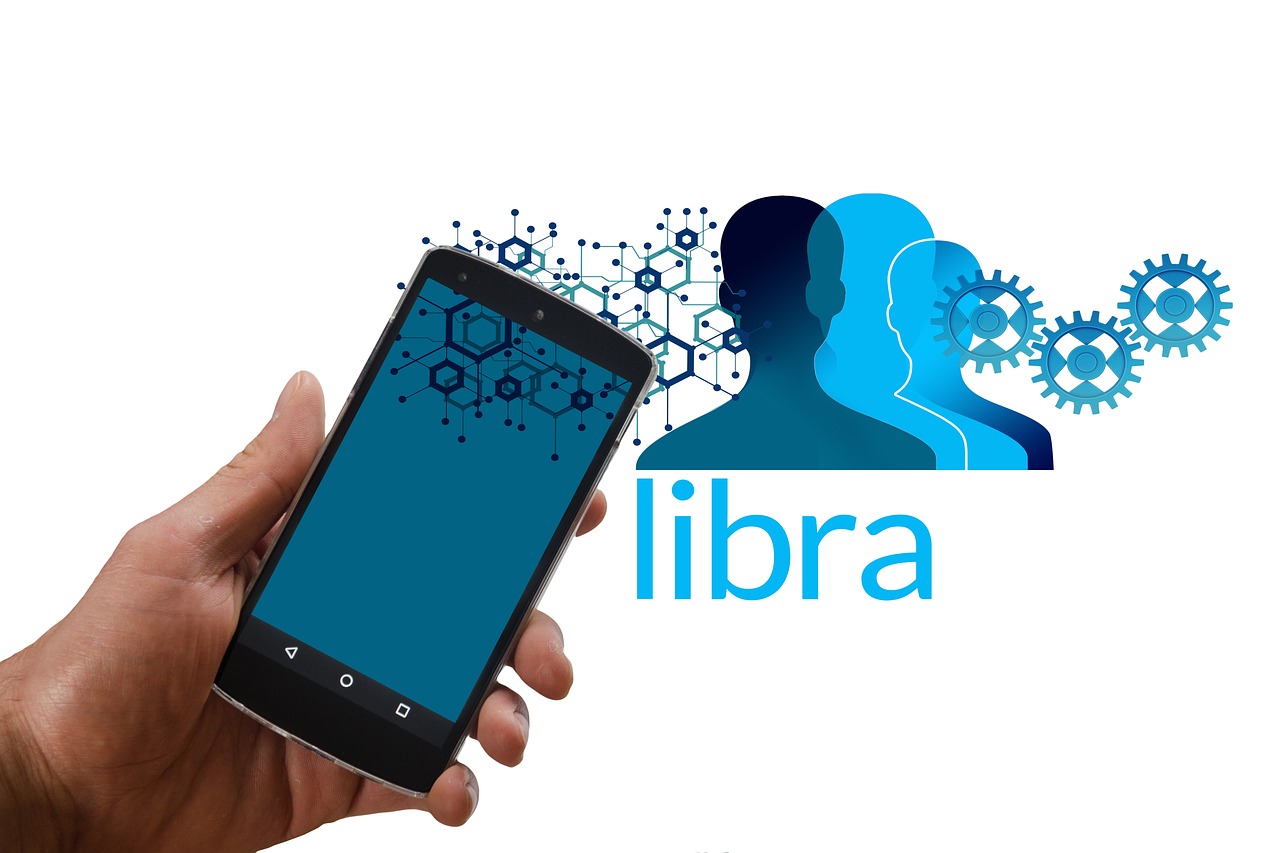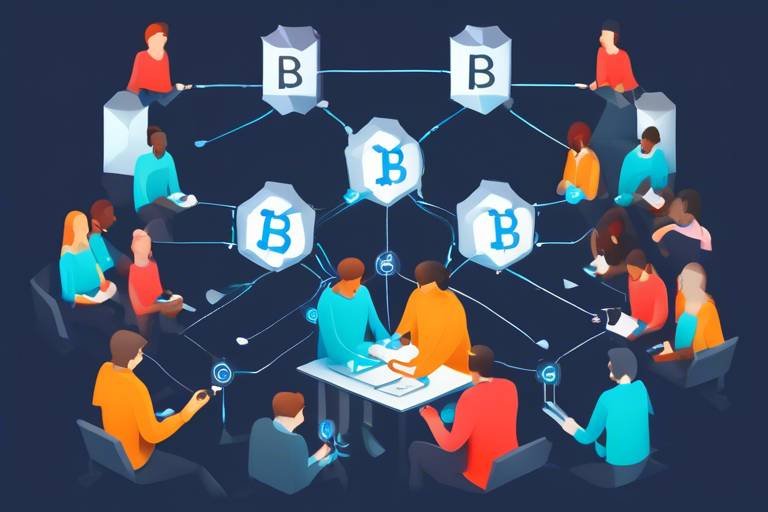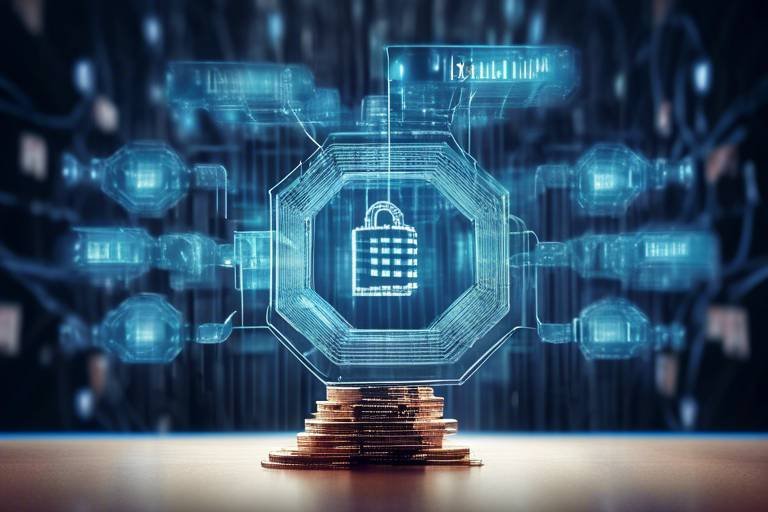How Blockchain Can Support Local Government Initiatives
In today's rapidly evolving digital landscape, local governments are constantly seeking innovative solutions to enhance their services and engage with their communities more effectively. One of the most promising technologies on the horizon is blockchain. Imagine a world where every transaction is transparent, secure, and accessible to all citizens. This is not just a dream; it's becoming a reality as blockchain technology is increasingly adopted by local governments. By leveraging this decentralized digital ledger, local administrations can improve transparency, streamline processes, and foster greater community engagement. In this article, we will explore the transformative potential of blockchain and how it can revolutionize local governance.
Blockchain is a decentralized digital ledger that records transactions across multiple computers in a way that ensures the security and transparency of the data. At its core, blockchain operates on a few fundamental principles: decentralization, immutability, and transparency. Unlike traditional databases controlled by a single entity, blockchain distributes data across a network of computers, making it nearly impossible for any single party to manipulate the information. This feature is particularly beneficial for local governments, as it enhances trust among citizens who can verify transactions independently. Additionally, once data is recorded on a blockchain, it cannot be altered or deleted, creating a permanent and tamper-proof record of all government transactions and decisions.
Transparency is crucial for fostering public trust in government. With blockchain, local governments can provide an immutable record of their transactions, allowing citizens to access information about spending, decision-making, and resource allocation. Imagine being able to track how every tax dollar is spent or to view the history of a public project from inception to completion. This level of transparency not only empowers citizens but also holds officials accountable for their actions. By utilizing blockchain, local governments can ensure that their operations are open and transparent, ultimately leading to a more engaged and informed populace.
Local governments often grapple with bureaucratic inefficiencies that can frustrate citizens and waste valuable resources. Blockchain technology can help automate and streamline various administrative processes, such as permit issuance, land registration, and public record management. For example, consider the traditional process of applying for a building permit, which often involves multiple departments, extensive paperwork, and long waiting times. With blockchain, all relevant data can be stored in a single, secure location, allowing for quicker approvals and fewer errors. This not only reduces costs but also significantly cuts down on the time it takes to process applications.
Engaging citizens in governance is vital for a thriving democracy. Blockchain can enhance citizen participation through secure voting systems, community feedback mechanisms, and participatory budgeting initiatives. Imagine a voting system where every vote is recorded on a blockchain, ensuring that the results are transparent and verifiable. Additionally, local governments can create platforms where citizens can provide feedback on community projects or even participate in budget allocation decisions. This fosters a sense of ownership and accountability, making citizens feel more connected to their local government.
Smart contracts are another exciting aspect of blockchain technology. These are self-executing contracts with the terms directly written into code, allowing for automatic execution when certain conditions are met. Local governments can utilize smart contracts to automate agreements, such as service contracts with vendors or community initiatives. This not only ensures compliance but also reduces the need for intermediaries, saving time and resources. For instance, a smart contract could automatically release funds for a project once specific milestones are achieved, ensuring that projects stay on track and within budget.
Data security is paramount for local governments, given the sensitive nature of citizen information. Blockchain's encryption and decentralized structure provide an additional layer of protection against data breaches and unauthorized access. Unlike traditional databases that can be vulnerable to hacking, blockchain technology ensures that sensitive information is stored securely across a network, making it significantly harder for malicious actors to compromise. This enhanced security can help local governments build trust with their constituents, as citizens feel more confident that their personal data is protected.
Real-world examples can illustrate the effectiveness of blockchain in local governance. Several municipalities around the globe have already begun implementing blockchain solutions with positive results. For instance, the city of Dubai aims to become the first city to fully implement blockchain technology by 2020, streamlining services and enhancing transparency. Another example is the state of Georgia, which has successfully utilized blockchain for land registration, reducing fraud and improving efficiency. These case studies provide valuable insights into the potential benefits and challenges of blockchain adoption in local government.
Despite its potential, the adoption of blockchain technology in local government is not without challenges. Issues such as scalability, regulatory hurdles, and the need for public awareness and education can impede progress. For instance, while blockchain offers enhanced security and transparency, the technology is still evolving, and many local governments may lack the technical expertise to implement it effectively. Additionally, there is a need for clear regulations to guide the use of blockchain in public administration, ensuring that it aligns with existing laws and policies.
Looking ahead, the future of blockchain integration in local governance appears promising. As technology continues to advance, local governments will have more opportunities to harness blockchain's potential to meet the evolving needs of their communities. From improving service delivery to enhancing citizen engagement, the possibilities are endless. As more municipalities adopt blockchain solutions, we can expect to see a shift towards more efficient, transparent, and accountable local governance.
- What is blockchain technology? Blockchain is a decentralized digital ledger that records transactions across multiple computers, ensuring security and transparency.
- How can blockchain enhance transparency in local government? By providing an immutable record of transactions, blockchain allows citizens to access information and hold officials accountable.
- What are smart contracts? Smart contracts are self-executing contracts with terms written into code, allowing for automatic execution when conditions are met.
- What challenges does blockchain face in local governance? Challenges include scalability, regulatory hurdles, and the need for public awareness and education.

Understanding Blockchain Technology
Blockchain technology is often described as a decentralized digital ledger that records transactions across a network of computers. Imagine a book that is constantly being updated, but instead of one person holding the book, everyone involved has their own copy. This makes it incredibly difficult for anyone to alter the information without consensus from the majority. At its core, blockchain operates on a few fundamental principles that ensure its security and transparency.
First and foremost, the concept of decentralization is what sets blockchain apart from traditional record-keeping systems. In a typical database, a central authority controls the data, which can lead to issues like fraud and manipulation. However, in a blockchain, the data is distributed across multiple nodes, meaning that no single entity has complete control. This distribution not only enhances security but also fosters trust among users, as everyone has access to the same information.
Another key feature of blockchain is its immutability. Once a transaction is recorded on a blockchain, it cannot be altered or deleted. This is achieved through cryptographic hashing, which creates a unique identifier for each block of data. If someone tries to change a block, the hash would change, alerting the network to the tampering. This characteristic makes blockchain an ideal tool for local governments aiming to maintain transparent and reliable records.
Moreover, the use of smart contracts—self-executing contracts with the terms of the agreement directly written into code—adds another layer of functionality to blockchain. These contracts automatically enforce and execute the terms when certain conditions are met, eliminating the need for intermediaries. This can streamline processes in local government operations, such as permitting and licensing, making them more efficient and cost-effective.
In summary, the unique attributes of blockchain technology—decentralization, immutability, and the potential for smart contracts—make it a compelling solution for local governments looking to enhance their operations. By embracing this innovative technology, municipalities can improve transparency, efficiency, and ultimately, citizen trust.
- What is blockchain? Blockchain is a decentralized digital ledger that records transactions across multiple computers, ensuring security and transparency.
- How does blockchain ensure security? Blockchain uses cryptographic hashing and decentralization to prevent tampering and unauthorized access to data.
- What are smart contracts? Smart contracts are self-executing contracts with the terms directly written into code, automating agreements without intermediaries.
- Can blockchain be used in local governments? Yes, blockchain can enhance transparency, streamline processes, and improve citizen engagement in local government initiatives.

Enhancing Transparency in Governance
In the realm of governance, transparency is not just a buzzword; it’s the bedrock of public trust. When citizens can see what their government is doing, they are more likely to engage and participate in the democratic process. Imagine a world where every decision made by local officials is recorded in a way that is accessible and immutable. This is where blockchain technology steps in, offering a revolutionary approach to enhance transparency.
At its core, blockchain acts as a digital ledger that is shared across multiple nodes, meaning no single entity has control over it. This decentralization is crucial for transparency. With each transaction or decision recorded on the blockchain, it creates an immutable record that cannot be altered or deleted. This feature ensures that once a decision is made, it remains permanently accessible for anyone who wishes to review it, thereby holding officials accountable for their actions.
Consider the implications of this for local governments. Citizens could easily access information regarding public spending, project statuses, and policy decisions. For example, if a local government allocates funds for a community park, the details of that allocation—including the amount, purpose, and timeline—could be recorded on the blockchain. This would not only inform the public but also enable them to track the progress of the project in real-time.
Furthermore, the transparency provided by blockchain can significantly reduce corruption. When government actions are visible to the public, the likelihood of unethical behavior diminishes. Citizens can monitor and question expenditures, ensuring that funds are used appropriately. This creates a culture of accountability, where officials are less likely to engage in practices that could undermine public trust.
To illustrate this, let’s take a look at a hypothetical scenario. Imagine a local government implementing a blockchain-based system for tracking public contracts. Each contract would be recorded on the blockchain, detailing the parties involved, the scope of work, and the financial terms. Citizens could then review these contracts at any time, providing a layer of oversight that traditional systems lack. This kind of transparency not only builds trust but also encourages community involvement, as residents feel empowered to voice their opinions and concerns.
In summary, enhancing transparency in governance through blockchain technology offers a multitude of benefits. It fosters trust between citizens and their government, reduces the potential for corruption, and encourages active participation in the democratic process. As we move forward, it’s essential for local governments to embrace these technologies, ensuring that their operations are as transparent as possible.
- Increased Accountability: Blockchain's immutable nature ensures that all actions are recorded and can be audited.
- Citizen Empowerment: Access to information allows citizens to engage more actively in governance.
- Reduction in Corruption: Transparency acts as a deterrent to unethical practices.

Streamlining Administrative Processes
Local governments are often bogged down by bureaucratic inefficiencies that can frustrate both officials and citizens alike. The traditional methods of handling administrative tasks can be slow, cumbersome, and prone to errors. However, with the advent of blockchain technology, there is a remarkable opportunity to revolutionize these processes, making them faster, more efficient, and less costly.
Imagine a world where applying for a permit or registering land doesn’t require mountains of paperwork and endless waiting periods. Blockchain can automate and streamline these processes by providing a secure and transparent platform for managing public records. For example, when a citizen applies for a building permit, the application can be recorded on a blockchain. This record is immutable and accessible, meaning that anyone can verify its status without the need for intermediaries. This not only speeds up the process but also reduces the likelihood of fraud or mismanagement.
Let’s break down some specific administrative processes that can greatly benefit from blockchain:
- Permit Issuance: By automating the issuance of permits through blockchain, local governments can significantly cut down on processing times. Smart contracts can be programmed to automatically approve permits once all criteria are met.
- Land Registration: Blockchain can create a permanent, tamper-proof record of land ownership. This can simplify property transactions and reduce disputes over land titles.
- Public Record Management: With blockchain, public records such as birth and death certificates can be stored securely and accessed easily, ensuring that vital information is always available when needed.
Additionally, the decentralized nature of blockchain means that multiple parties can access and verify records simultaneously, reducing the need for physical storage and the associated costs. This can lead to significant cost savings for local governments, allowing them to reallocate resources to more critical areas of public service.
Moreover, the implementation of blockchain can also enhance accountability. By providing an unalterable record of transactions and processes, citizens can have greater confidence in their local government. They can easily track the progress of their applications and see how public funds are being used, fostering a culture of transparency and trust.
In conclusion, streamlining administrative processes through blockchain technology not only makes local government operations more efficient but also improves the overall experience for citizens. As we move forward, embracing these innovative solutions can lead to a more responsive and accountable government, ultimately benefiting the communities they serve.

Facilitating Citizen Engagement
In the digital age, fostering strong connections between local governments and their citizens is more important than ever. Blockchain technology can play a pivotal role in facilitating this engagement, transforming how communities interact with their governance. Imagine a world where every citizen has a direct line to their local government, where voices are not just heard but actively shape policies and decisions. This is the promise of blockchain.
One of the most exciting applications of blockchain in citizen engagement is secure voting. Traditional voting methods often face criticism for their lack of transparency and susceptibility to fraud. However, with blockchain, every vote can be recorded on a decentralized ledger, making it nearly impossible to alter or tamper with. This not only enhances trust in the electoral process but also encourages higher voter turnout. Citizens can cast their votes from the comfort of their homes, knowing their choices are secure and anonymous.
Moreover, blockchain can facilitate community feedback mechanisms. Imagine a platform where citizens can voice their opinions on local issues, propose initiatives, and vote on community projects, all while ensuring their contributions are securely documented. This kind of participatory governance can lead to more informed decision-making and a greater sense of ownership among residents. For instance, local governments can create decentralized applications (dApps) that allow citizens to engage in discussions about budget allocations or urban development plans. This real-time feedback loop helps build a more responsive and accountable government.
Participatory budgeting is another area where blockchain shines. This process allows citizens to decide how public funds are spent, fostering a sense of community and shared responsibility. By utilizing blockchain, local governments can ensure that every dollar spent is tracked and accounted for, providing transparency that builds trust. Imagine a scenario where a community comes together to allocate funds for parks, schools, or infrastructure projects, all while having the assurance that their decisions are securely recorded and can’t be manipulated by external influences.
To illustrate the potential of blockchain in facilitating citizen engagement, consider the following table that outlines various applications and their benefits:
| Application | Description | Benefits |
|---|---|---|
| Secure Voting | Decentralized voting system using blockchain | Enhanced trust, increased turnout, tamper-proof |
| Community Feedback | Platforms for citizens to voice opinions and suggestions | Real-time input, greater accountability, informed decisions |
| Participatory Budgeting | Citizen involvement in budget allocation | Transparency, shared responsibility, community empowerment |
In conclusion, blockchain technology has the potential to revolutionize how local governments engage with their residents. By providing secure platforms for voting, feedback, and budgeting, it fosters a culture of transparency and participation. As communities become more involved in governance, the benefits are clear: stronger connections, increased trust, and a more informed citizenry. The question remains, how soon can we implement these solutions to enhance our local governance?
- What is blockchain technology? Blockchain is a decentralized digital ledger that securely records transactions across multiple computers.
- How can blockchain improve citizen engagement? By providing secure voting, feedback mechanisms, and participatory budgeting, blockchain fosters transparency and involvement.
- Are blockchain voting systems secure? Yes, blockchain voting systems are designed to be tamper-proof, ensuring the integrity of each vote.
- What are the challenges of implementing blockchain in local governance? Challenges include scalability, regulatory hurdles, and the need for public awareness and education.

Implementing Smart Contracts
Imagine a world where agreements are executed automatically, cutting out the middlemen and ensuring that all parties uphold their end of the deal. This is the promise of smart contracts, a revolutionary feature of blockchain technology that can dramatically enhance the efficiency of local government operations. Smart contracts are essentially self-executing contracts with the terms of the agreement directly written into code. They run on the blockchain, which means they are immutable and transparent, ensuring that once a contract is set, it cannot be altered or tampered with.
Local governments can leverage smart contracts in various ways, making processes smoother and more reliable. For instance, when a local government issues a permit, a smart contract can automatically verify the necessary conditions are met before granting approval. This not only speeds up the process but also minimizes human error and potential corruption. By removing the need for intermediaries, such as notaries or bureaucrats, smart contracts can significantly reduce administrative costs.
Here are a few key areas where smart contracts can be implemented:
- Permit Issuance: Automating the issuance of permits for construction or business operations can streamline the approval process, ensuring compliance with local regulations.
- Land Registration: Smart contracts can facilitate secure and transparent land transactions, reducing disputes and ensuring that ownership records are accurate.
- Public Fund Allocation: Local governments can use smart contracts to manage the distribution of public funds, ensuring that money is allocated according to pre-defined criteria and that all expenditures are transparent and accountable.
The beauty of smart contracts lies in their ability to foster trust and accountability. For example, during a public project, stakeholders can track progress in real-time through the blockchain, with payments released automatically upon the completion of specific milestones. This not only keeps all parties accountable but also reassures the community that their tax dollars are being used effectively.
However, implementing smart contracts is not without its challenges. Local governments must ensure that the code is thoroughly tested and secure to prevent vulnerabilities. Additionally, there needs to be a concerted effort to educate both government officials and citizens about how these contracts work. By doing so, local governments can maximize the benefits of this innovative technology while minimizing the risks.
In conclusion, the adoption of smart contracts in local governance can lead to a more efficient, transparent, and trustworthy administrative process. As we continue to explore the potential of blockchain technology, it is clear that smart contracts will play a pivotal role in shaping the future of public administration.
- What are smart contracts? Smart contracts are self-executing contracts with the terms of the agreement written into code, operating on a blockchain.
- How can local governments benefit from smart contracts? They can automate processes, reduce costs, enhance transparency, and ensure accountability in public administration.
- Are there risks associated with smart contracts? Yes, risks include coding errors, security vulnerabilities, and the need for public education on how they work.

Improving Data Security and Privacy
In today's digital age, where data breaches and privacy concerns are rampant, ensuring the security of sensitive information is more crucial than ever—especially for local governments that handle a wealth of personal data. Blockchain technology offers a robust solution to these challenges by leveraging its inherent features to protect citizen information.
At its core, blockchain is a decentralized system. This means that rather than storing data in a single location, it is distributed across a network of computers. This decentralization significantly reduces the risk of a single point of failure, making it exceedingly difficult for hackers to compromise the entire system. Imagine a vault where each piece of valuable information is locked in a separate box, spread across different locations; even if one box is tampered with, the others remain secure. This is the essence of blockchain's security model.
Moreover, blockchain employs advanced encryption techniques that ensure data is not only stored securely but also transmitted safely. Each transaction is encrypted and linked to the previous one, forming a chain of blocks that is nearly impossible to alter. This creates an immutable record of all transactions, meaning once data is recorded on the blockchain, it cannot be changed or deleted without consensus from the network. This feature is particularly vital for local governments, as it fosters trust among citizens who can verify that their information is handled with the utmost integrity.
Another significant advantage of blockchain is its ability to enhance privacy. Through the use of public and private keys, citizens can control who has access to their information. This means that sensitive data can be shared only with authorized parties, providing individuals with greater control over their personal information. Imagine being able to handpick the people who can view your personal data, akin to giving out keys to your home only to trusted friends and family.
Furthermore, local governments can implement smart contracts to automate data-sharing agreements while maintaining privacy. These self-executing contracts can stipulate the terms under which data can be accessed, ensuring compliance with privacy regulations and protecting citizens' rights. For instance, a smart contract could allow a citizen to share their health records with a local clinic for a specific purpose and only for a limited time, after which access is automatically revoked.
Despite these benefits, it is essential to recognize that blockchain is not a silver bullet for all data security issues. Local governments must still be proactive in their cybersecurity measures, including regular audits and updates to their systems. Additionally, educating staff and the public about the importance of data security and privacy in a blockchain context is vital for fostering a culture of security.
In conclusion, as local governments continue to explore innovative solutions to enhance data security and privacy, blockchain technology stands out as a promising tool. By decentralizing data storage, employing encryption, and enabling greater control over personal information, blockchain not only protects sensitive data but also builds trust between citizens and their governments. As we move forward, the integration of blockchain in local governance could very well redefine the standards of data security and privacy.
- What is blockchain technology?
Blockchain is a decentralized digital ledger that records transactions across multiple computers, ensuring security and transparency.
- How does blockchain enhance data security?
By decentralizing data storage and employing encryption, blockchain minimizes the risk of data breaches and unauthorized access.
- Can citizens control their data on the blockchain?
Yes, through public and private keys, citizens can manage who has access to their personal information.
- What are smart contracts?
Smart contracts are self-executing contracts with terms directly written into code, automating agreements and ensuring compliance.

Case Studies of Blockchain in Local Government
To truly grasp the transformative power of blockchain in local governance, it’s essential to look at real-world examples where this technology has been successfully implemented. These case studies not only showcase the practical applications of blockchain but also highlight the tangible benefits that can arise from its adoption. Let’s dive into a few noteworthy instances that illustrate how municipalities are harnessing blockchain to enhance their operations and engage with their communities more effectively.
One prominent example comes from the state of Georgia, where the government has initiated a blockchain-based land registry system. This innovative approach has significantly reduced the time needed to process property transactions, which traditionally could take weeks or even months. By utilizing blockchain, Georgia has created a transparent and immutable record of land ownership, which minimizes disputes and fraud. As a result, citizens can confidently buy and sell property, knowing that the records are secure and easily verifiable.
Another fascinating case is found in Switzerland, particularly in the city of Zug, often referred to as "Crypto Valley." Zug has implemented a blockchain-based identity verification system that allows residents to log into government services using their digital identities. This system not only streamlines access to services but also enhances security and privacy. Citizens can manage their personal information more effectively, reducing the risk of identity theft and ensuring that their data remains confidential.
In Estonia, a country renowned for its e-governance initiatives, blockchain technology is utilized to secure public records, including health data and voting systems. The Estonian government has created a blockchain-based platform that allows citizens to access their health records securely while maintaining complete control over who can view their information. This initiative has increased public trust in government services and empowered citizens to take control of their data.
To further illustrate the impact of blockchain in local government, we can summarize some key benefits observed in these case studies:
| Location | Application | Benefits |
|---|---|---|
| Georgia, USA | Land Registry | Reduced transaction time, minimized disputes, increased transparency |
| Zug, Switzerland | Digital Identity Verification | Streamlined access to services, enhanced security, improved privacy |
| Estonia | Public Records Management | Secure access to health data, increased public trust, data control for citizens |
These case studies clearly demonstrate that blockchain is not just a buzzword; it is a viable solution that local governments can leverage to improve their services and foster greater engagement with their constituents. As more municipalities explore the possibilities of blockchain, we can expect to see a ripple effect of innovation that enhances the overall governance experience.
However, it’s important to recognize that while these examples are promising, they also come with lessons learned. Each implementation journey has its unique challenges, from technical hurdles to the need for public education about the technology. As local governments continue to experiment with blockchain, sharing these insights will be crucial in paving the way for broader adoption.
- What is blockchain technology? Blockchain is a decentralized digital ledger that records transactions across multiple computers, ensuring security and transparency.
- How can blockchain enhance transparency in local government? By providing an immutable record of transactions and decisions, blockchain allows citizens to access information and hold officials accountable.
- What are smart contracts? Smart contracts are self-executing contracts with terms directly written into code, automating agreements and ensuring compliance.
- Are there challenges to implementing blockchain in local government? Yes, challenges include scalability, regulatory hurdles, and the need for public awareness and education.

Challenges and Limitations
While the potential of blockchain technology in local governance is undeniably exciting, it is essential to address the that come with its adoption. First and foremost, one of the significant hurdles is scalability. As more users and transactions are added to a blockchain network, the system can become slow and inefficient. This is particularly concerning for local governments that handle a high volume of transactions daily. Imagine trying to get through a crowded subway station during rush hour; that’s what a congested blockchain can feel like.
Another challenge is the regulatory environment. Blockchain technology is still relatively new, and many local governments are unsure how to regulate it effectively. There are questions about compliance, legal frameworks, and how existing laws apply to blockchain transactions. This uncertainty can lead to hesitancy in adopting the technology, as officials may fear running afoul of regulations.
Furthermore, there’s a knowledge gap among government officials and staff regarding blockchain technology. Many may not fully understand how it works or its potential benefits. This lack of understanding can result in resistance to change, as some might prefer sticking to traditional methods rather than exploring innovative solutions. To bridge this gap, education and training are crucial. Local governments need to invest in workshops and seminars to familiarize their teams with blockchain.
Additionally, the cost of implementation can be a significant barrier. While blockchain can lead to long-term savings, the initial investment in technology, infrastructure, and training can be daunting for many municipalities, especially those with tight budgets. It’s like trying to convince someone to buy a high-quality kitchen appliance; the upfront cost may seem steep, but the long-term benefits can outweigh the initial expense.
Lastly, there are concerns about data privacy. Although blockchain is designed to be secure, the transparency it offers can lead to worries about sensitive information being exposed. Local governments must find a balance between transparency and privacy, ensuring that citizens' data is protected while still allowing for public access to information.
In summary, while blockchain presents a wealth of opportunities for local governance, it is essential to navigate the challenges associated with its adoption. By addressing scalability issues, regulatory uncertainties, knowledge gaps, implementation costs, and privacy concerns, local governments can pave the way for a successful integration of blockchain technology.
- What is blockchain technology?
Blockchain is a decentralized digital ledger that records transactions across multiple computers, ensuring security and transparency. - How can blockchain enhance transparency in local governance?
It provides an immutable record of government transactions and decisions, allowing citizens to access information and hold officials accountable. - What are smart contracts?
Smart contracts are self-executing contracts with terms directly written into code, enabling automation and compliance without intermediaries. - What are the main challenges of implementing blockchain?
Scalability, regulatory hurdles, knowledge gaps, implementation costs, and data privacy concerns are some of the key challenges.

The Future of Blockchain in Local Governance
The future of blockchain in local governance is not just a fleeting trend; it represents a profound shift in how governments can operate and engage with their communities. As technology continues to evolve, local governments are poised to leverage blockchain to create more efficient, transparent, and accountable systems. Imagine a world where every transaction is recorded in an unalterable ledger, where citizens can track the flow of public funds in real-time, and where their voices are amplified through secure voting mechanisms. This is not just a dream; it's the potential reality that blockchain presents.
One of the most exciting prospects is the integration of blockchain with other emerging technologies such as artificial intelligence and the Internet of Things (IoT). By combining these technologies, local governments can enhance their capabilities even further. For instance, smart cities can utilize IoT devices to collect data on public services, which can then be securely recorded on a blockchain. This creates a feedback loop where data informs decision-making, and citizens can see the impact of their input in real-time.
Furthermore, as the demand for decentralized governance grows, blockchain can empower communities to have a say in local decision-making processes. Imagine participatory budgeting where citizens can propose and vote on projects using blockchain technology, ensuring that every vote is counted and recorded transparently. This not only fosters a sense of ownership among residents but also builds trust in local government.
However, the path to widespread blockchain adoption in local governance is not without its challenges. Local governments must navigate issues such as scalability and regulatory compliance. As more municipalities explore blockchain, they will need to work collaboratively to develop standards and best practices that can be shared across jurisdictions. This will not only enhance the technology's reliability but also facilitate its integration into existing systems.
In addition, public awareness and education are crucial. Citizens need to understand the benefits of blockchain technology and how it can improve their interactions with local government. Governments can play a pivotal role in this by providing resources and training that demystify blockchain and empower citizens to engage with it effectively.
As we look to the future, it’s clear that blockchain has the potential to revolutionize local governance. By embracing this technology, local governments can not only improve their operations but also forge stronger connections with their communities. The vision of a more transparent, efficient, and engaged local government is within reach, and blockchain could be the key to unlocking that potential.
- What is blockchain technology?
Blockchain is a decentralized digital ledger that securely records transactions across multiple computers, ensuring transparency and reducing the risk of data tampering.
- How can blockchain enhance transparency in local governance?
By providing an immutable record of transactions and decisions, blockchain allows citizens to easily access information and hold officials accountable.
- What are smart contracts?
Smart contracts are self-executing contracts with the terms of the agreement directly written into code, automating processes and reducing the need for intermediaries.
- What challenges does blockchain face in local governance?
Challenges include scalability, regulatory hurdles, and the need for public awareness and education regarding blockchain technology.
Frequently Asked Questions
- What is blockchain technology?
Blockchain technology is a decentralized digital ledger that records transactions across multiple computers. This ensures that the data is secure, transparent, and immutable, making it a powerful tool for various applications, including local government initiatives.
- How can blockchain enhance transparency in local governance?
Blockchain provides an immutable record of government transactions and decisions. This means that citizens can easily access information and hold officials accountable, fostering trust and transparency within the community.
- In what ways can blockchain streamline administrative processes?
Blockchain can automate and simplify various bureaucratic processes such as permit issuance, land registration, and public record management. By reducing the time and costs associated with these tasks, local governments can operate more efficiently.
- How does blockchain facilitate citizen engagement?
Blockchain technology enables secure voting, community feedback mechanisms, and participatory budgeting. This allows citizens to have a more active role in governance, making them feel more informed and involved in decision-making processes.
- What are smart contracts and how can local governments use them?
Smart contracts are self-executing contracts with the terms directly written into code. Local governments can use smart contracts to automate agreements, ensuring compliance and reducing the need for intermediaries, which can save time and resources.
- How does blockchain improve data security and privacy?
Blockchain's encryption and decentralized nature help protect sensitive citizen information. This reduces the risk of data breaches and ensures that personal data remains secure, which is crucial for local governments handling public information.
- Can you provide examples of blockchain implementation in local government?
Yes! There are several municipalities that have successfully implemented blockchain solutions. These case studies showcase the benefits they experienced, such as increased efficiency and improved public trust, along with the lessons learned from their journeys.
- What challenges does blockchain adoption face in local governance?
Despite its potential, blockchain adoption encounters challenges like scalability issues, regulatory hurdles, and a general lack of public awareness and education regarding the technology. Addressing these challenges is essential for successful implementation.
- What does the future hold for blockchain in local governance?
The future of blockchain in local governance looks promising, with advancements in technology and an increasing demand for efficient and transparent services. As communities evolve, blockchain could play a significant role in enhancing public administration.



















